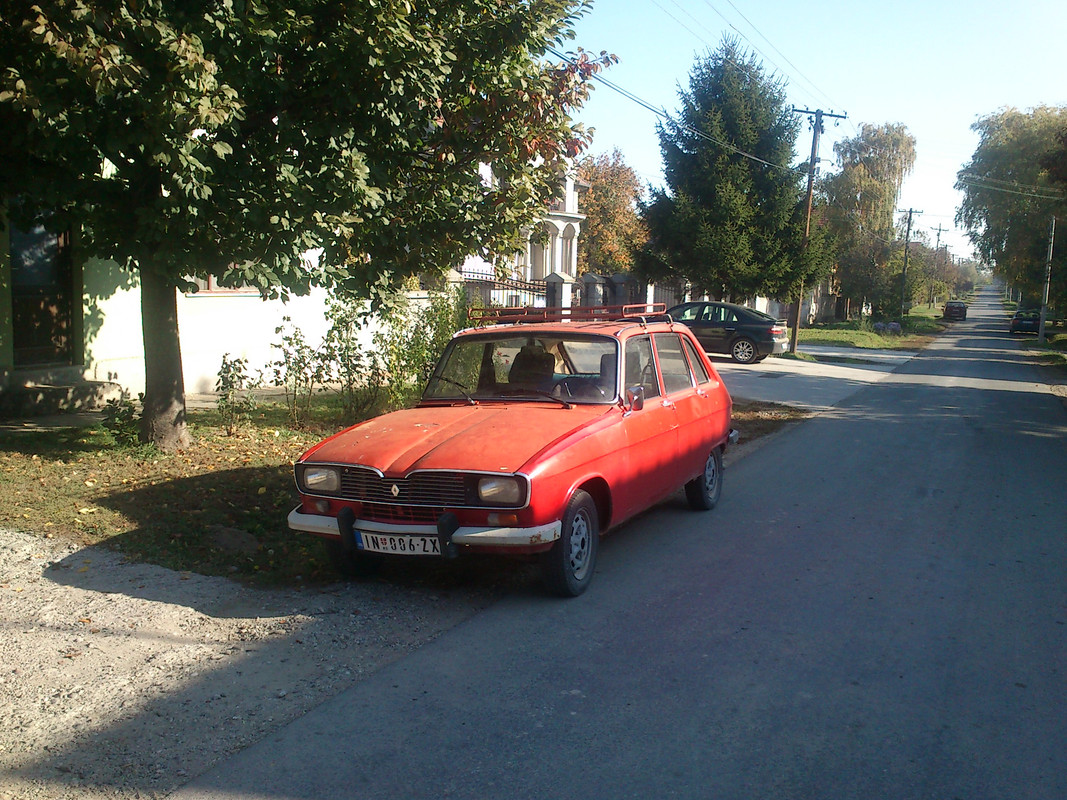http://media.renault.com/global/en-gb/r ... enault.com
This year marks the 50th anniversary of one of the most ingenuous saloon cars of its day, the Renault 16.
In 1965, the Renault 16 stood out as the first status saloon to feature a tailgate, providing it with an unprecedented level of versatility for its day.
The model’s original lines lost no time winning over French families of the baby boom years looking for a prestige motor car.
The Renault 16 will also be remembered for its modern, avant-garde equipment specification.
1965: The Renault 16, the original family ‘Voiture à Vivre’
The history of Renault’s family cars started 50 years ago in France during the post-war boom. In early 1965, the brand unveiled an innovative new vehicle at the Geneva Motor Show: the Renault 16. This new hatchback featured an original body shape founded on a two-box design complete with a tailgate for access to the boot. The model combined functional qualities with elegant looks and no fewer than six windows, carrying over the ingredients that were behind the success of the Renault 4 to an upmarket family vehicle. It was the perfect family car.
Renault’s determination to innovate
The project to design a successor to the Frégate was an ambitious one, especially as Pierre Dreyfus – Renault’s CEO from 1955 to 1975 – wanted it to stand out from its rivals. “We have to take a different approach,” he proclaimed. “Cars can’t just be four seats and a boot any longer. They must be viewed as a volume.”
The result was the Renault 16, a radical car penned by Gaston Juchet and signed off by Dreyfus who predicted it would be “a car for families drawn by modern consumer society.”
Crossover thinking
The Renault 16 was a cross between a saloon and a van, a design that made it exceptionally versatile for the era. The boot could be arranged in four different ways, with a carrying capacity ranging from 346dm3 to 1,200dm3 thanks to a sliding, folding and removable rear bench. The seats were designed to suit all types of use, from fixing a child seat to a reclined position for resting, and even a couchette position for two. From the outset, the Renault 16 was thought through as a family car which was fundamentally different from anything produced by rival makes.
Technically avant-garde
The Renault 16 also marked its time thanks to its modern, avant-garde equipment specification. Front-wheel drive was still unusual in its class at the time, while the front-central engine ensured first class road manners. The engine, like the gearbox and cylinder head, were made of aluminium and produced using a pressure-die casting process. From 1968, with the introduction of a TS version (‘Tourisme Sportif’), a range of innovative new features became standard, including a defrosting rear window, additional iode headlights, two-speed windscreen wipers with four-jet washers and an interior rear-view mirror with day/night settings. In 1969, the Renault 16 gained reversing lights, along with front power windows, an electric sunroof and leather upholstery. This rich equipment list made the Renault 16 a prestige car, in perfect keeping with the day’s consumer society trends, and represented a new way to go motoring.
Car of the Year 1966
Unveiled at the 1965 Geneva Motor Show, the Renault 16 surprised visitors with its offbeat styling. However, it quickly won the public over by meeting its demand for simplicity. The gamble was acclaimed by the industry, too: in 1966, the model was named Car of the Year, ahead of the Rolls-Royce Silver Shadow, no less!
The range-topping Renault 16 TX
From 1973 until the end of the model’s career in 1980, the Renault 16 was available with a 93hp 1,647cc engine for the TX version. Top speed round a circuit was 175kph, while equipment included central locking and inertia reel seatbelts, innovative features that contributed to improving the quality of Renault 16 owners’ everyday lives.










https://www.youtube.com/watch?v=JMFM386mfVA
https://www.youtube.com/watch?v=ePPjRMrRRo4






